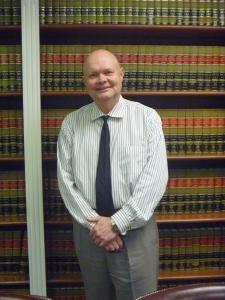Robert Lucas

1997 North Carolina Fisheries Reform Act
The Fisheries Reform Act is the most significant fisheries legislation in NC history.
In 1994, the North Carolina General Assembly approved a moratorium on the sale of new commercial fishing licenses and established the 19-member Fisheries Moratorium Steering Committee to oversee a study of the state's entire coastal fisheries management process and to recommend changes to improve that process. The Moratorium Steering Committee included legislators, fisheries managers, scientists, commercial fishermen, and recreational fishermen. The committee commissioned six research studies and reviewed a broad range of issues, including fishing licenses, fishing gear, habitat protection, agency organization, and law enforcement. The committee issued a draft report in the late summer of 1996, held 19 public meetings across the state, and adopted a final report in October 1996 that formed the basis for the Fisheries Reform Act. Governor James B. Hunt signed the Act into law on August 14, 1997.
The 1997 North Carolina Fisheries Reform Act: An Oral History Perspective was made possible by the North Carolina Sea Grant Community Collaborative Research Grant Program.
National Capital Contracting
Robert "Bob" Lucas is a professional lawyer and former Chairman of the North Carolina Marine Fisheries Commission who led efforts to pass the 1997 Fisheries Reform Act. He has a deep-rooted passion for recreational fishing. His career in law began after a sustained interest in the legal field, which led him to pursue a formal education in law. Upon completing his studies, Lucas embarked on a legal career that saw him engage in various capacities within the legal system. His expertise and dedication to the profession earned him respect among his peers and clients. Outside the courtroom, Lucas found solace and joy in the tranquility of fishing, an activity that not only provided him with relaxation but also connected him to the natural environment. His love for fishing transcended beyond a hobby as he became increasingly aware of the environmental and regulatory issues surrounding fisheries. This awareness spurred him to become an advocate for sustainable fishing practices and effective fisheries management. His commitment to the cause was evident in his active participation in community and state-level initiatives aimed at preserving the aquatic ecosystems for future generations.
Scope and Content Note:
The interview with Robert Lucas provides a comprehensive overview of his involvement in fisheries management and the establishment of the Fisheries Reform Act. Lucas discusses his law career and how he became involved in fisheries issues in the mid-1990's. He provides insight into how the law was shaped through public meetings and negotiation with stakeholders. Lucas shares insights into his early life, detailing his journey into the legal profession and his affinity for fishing. He expresses his initial frustrations with the disjointed approach to fisheries management, which led him to take on a leadership role as the chairman of the Marine Fisheries Commission. In this capacity, Lucas faced significant challenges, including the implementation of a contentious moratorium on fishing licenses, which garnered substantial media attention and controversy. The narrative then shifts to the collaborative efforts in the early to mid-1990s to create the Fisheries Reform Act. Lucas underscores the complexities of navigating the political landscape and the importance of involving a diverse group of stakeholders, such as scientists, fishermen, lawyers, and politicians, to achieve a unified goal. He reflects on the difficulties and triumphs in executing fisheries management plans, emphasizing the struggle to obtain necessary funding and the resistance from various interest groups. Lucas also highlights the distinctive aspects of North Carolina's fisheries, the critical role of public participation in policymaking, and his personal commitment to conserving the state's aquatic resources. The interview concludes with Lucas discussing the long-term effects and ongoing challenges of the Fisheries Reform Act, acknowledging the contributions of citizens and committee members, and stressing the need for sustained dedication to the Act's objectives.
Please Note: The oral histories in this collection are protected by copyright and have been created for educational, research and personal use as described by the Fair Use Doctrine in the U.S. Copyright law. Please reach out Voices@noaa.gov to let us know how these interviews are being used in your research, project, exhibit, etc. The Voices staff can help provide other useful resources related to your inquiry.
The NOAA mission is to understand and predict changes in climate, weather, oceans, and coasts, to share that knowledge and information with others, and to conserve and manage coastal and marine ecosystems and resources. The Voices Oral History Archives offers public access to a wide range of accounts, including historical materials that are products of their particular times, and may contain offensive language or negative stereotypes.
Voices Oral History Archives does not verify the accuracy of materials submitted to us. The opinions expressed in the interviews are those of the interviewee only. The interviews here have been made available to the public only after the interviewer has confirmed that they have obtained consent.
